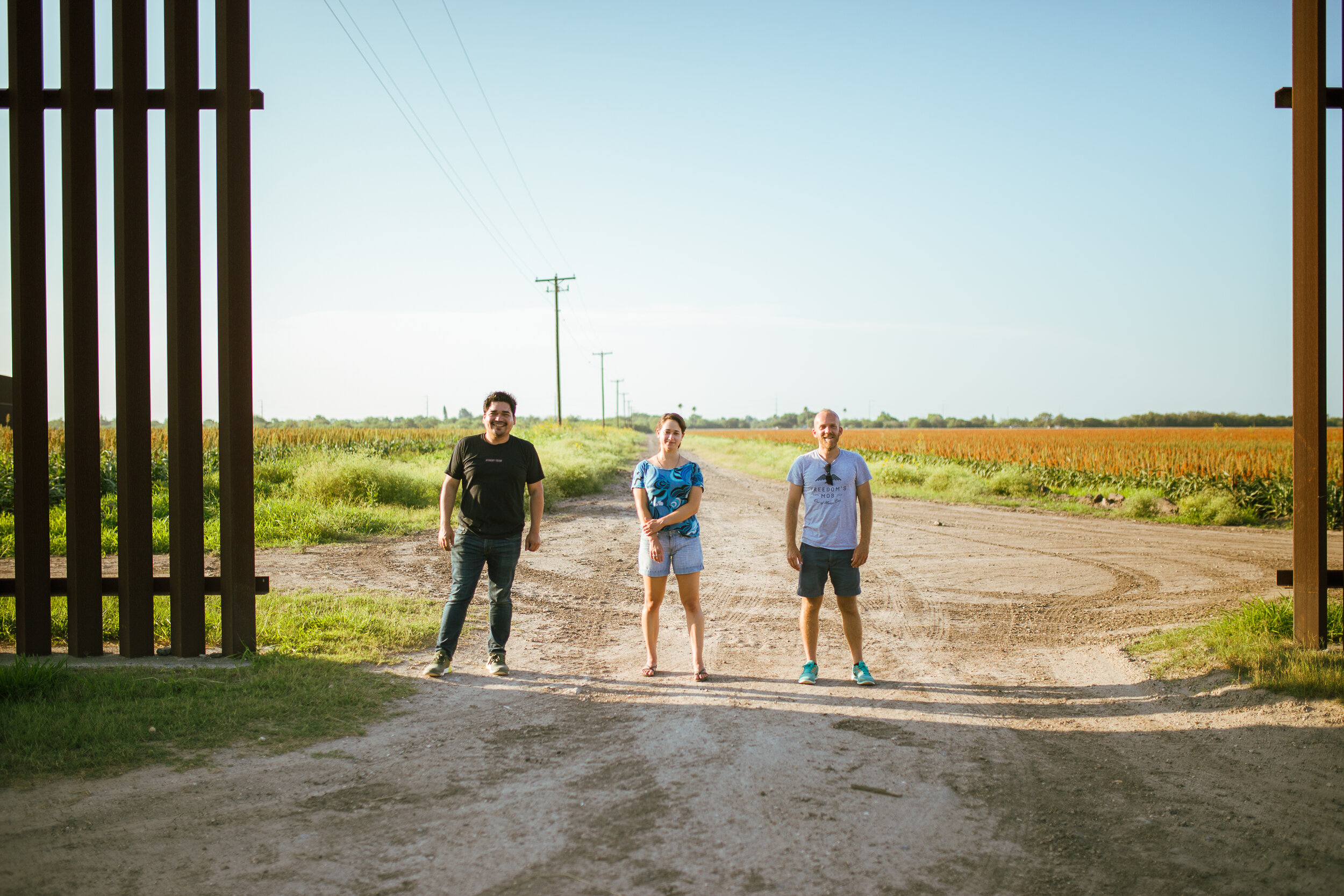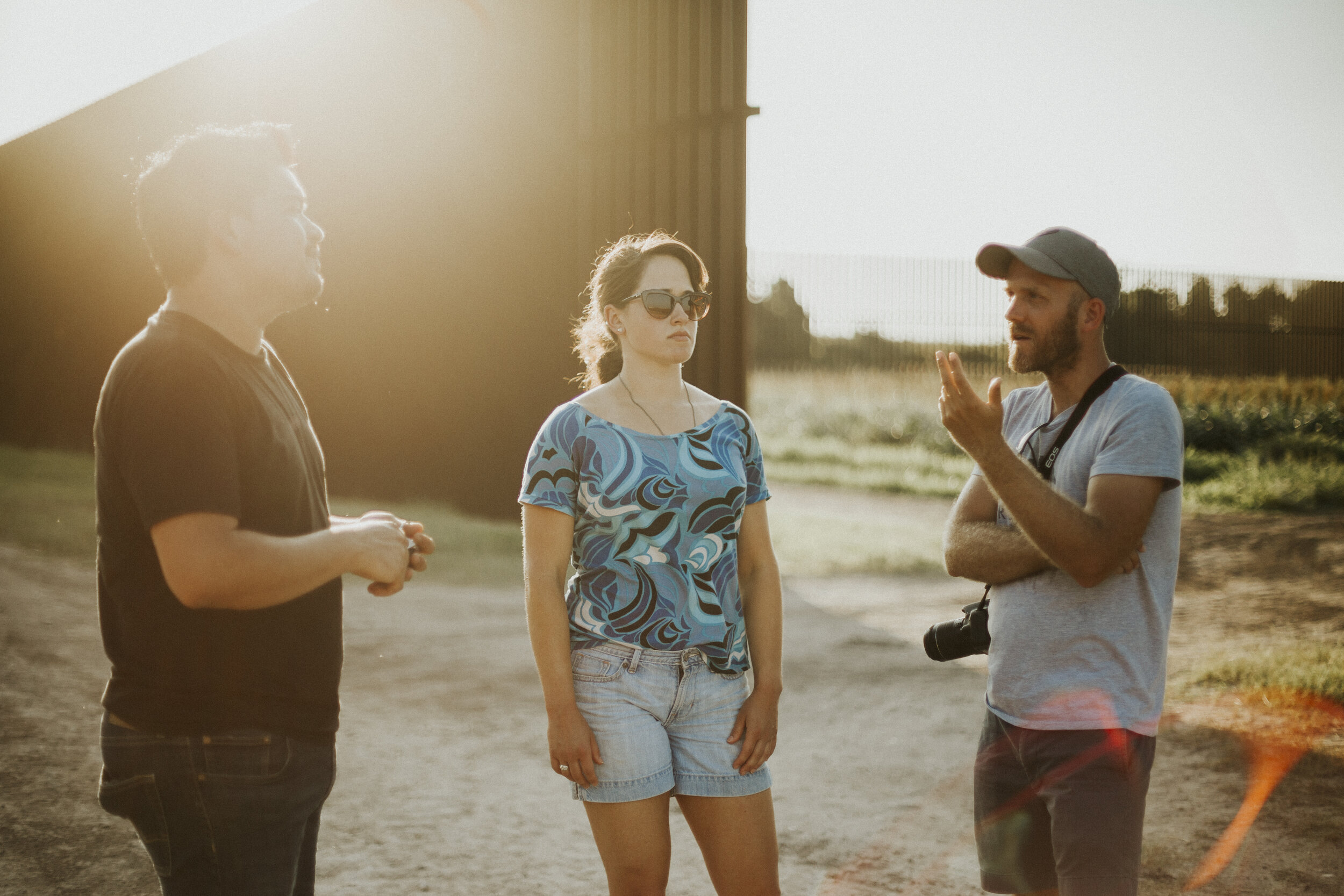Why building the liberatus team is worth $1 million in contributions over the next five years
“A culture cannot evolve without honest, powerful storytelling.”
-Robert McKee
Perspective from Caleb Paxton, Liberatus Founder
Introduction: Who this overview is for
Whether you give $1 or $1 million, or have already contributed, this overview of who the Liberatus team is, what we have created, and where we are going will cover why your contribution matters. Our vision is American unity, and our mission is to create a culture of American unity for the next generation by producing content, experiences, and leaders that inspire it today. Whether you are a political professional looking for a fresh way to express your voice, a content creator looking for a new way to use your artistic skill, an American citizen looking for a place to belong in American politics that’s in line with your faith or values, a prospective candidate or nonprofit leader looking to take on a greater leadership role in your community, or a major funder looking for a new project to accelerate that has nearly seven years of experience behind it, there’s something here for you. Thank you for taking the time to share the mission with us!
Seven reasons why building the liberatus team is worth $1 million over the next five years
#1: It’s culture, not who’s in power, that will determine the fate of American self-governance over the next 40 years.
Over the next 40 years we hope to inspire movement from a culture of politics to a culture of unity. While there are many people and organizations working to improve the health of American politics, Liberatus offers an opportunity to play a part in that work, which is the challenge of our time. Policies matter, and it’s because our experiment in self-governance matters that we also need to create a culture of unity to make it sustainable and lasting.
We believe that most people, and especially millennials, are tired of politics as usual, are looking for a way to stay involved that fits their ethos and values, and will participate if they see a compelling path forward. Liberatus is for them, and for the next generation. It’s not about controlling or changing the culture “out there,” it’s about thoughtfully creating culture “in here” where we live and work.
Creating a culture of unity is also a call to conversion, to move from a culture of political divisions and mistrust to a culture of unity. For followers of Jesus, it’s about placing our hope in the kingdom of God while also responsibly governing a nation as citizens of both. Like the three movements of the spiritual life which Henri Nouwen articulates beautifully in Reaching Out, we may spend our lives bouncing back and forth between the poles of political division and political unity. But the more we do, the more we will desire the latter and see new ways to create that culture for the next generation.
“Understanding that our lives are not about us is the connection point with everything else…. After such a discovery, we are grateful to be a part—and only a part! We do not have to figure it all out, straighten it all out, or even do it perfectly by ourselves. We do not have to be God. It is an enormous weight off our backs. All we have to do is participate!”
-Richard Rohr, Center for Action and Contemplation
Additional Resources:
Read more about what our faith-rooted approach to American unity means on Nations.
View this video covering the full list of ten reasons why we do the work to inspire unity.
Learn more on what movement from a culture of politics to a culture of unity can look like.
Photos by Ana Waltschew, Border Perspective, and Joe Gonzalez.
#2: The Liberatus team has compiled a work of art in Volume One over the last five years. Now we want to produce two volumes every year to inspire American unity.
“If words are insufficient to describe our experiences, then art, like skill, becomes necessary.”
-Emma Voigt, Liberatus Volume One
Liberatus Volume One offers inspiration for American unity and includes stories that elevate the human experience and blends congressional-level research with contemplative spirituality, beautiful photography, and good design. Its theme of Refuge advocates for refugees and the displaced, and we chose that theme because when we see ourselves in their stories, we begin to understand nuance and paradox, which is essential if we are to govern wisely.
We began in 2015 as a creative outlet for professionals in American politics to write about healing, and you can find 122 digital journal entries in our archives. We work hard to continually improve the quality of what we produce in order to make reading the stories enjoyable and life-giving for you.
Our contributors represent the entire political spectrum, and it’s the contributions of our team that make your financial contributions matter. So far we’ve created what you see in our archives and in Volume One with only $85,000 in donations over 6.5 years, plus volunteer hours that are worth at least $500,000.
We hope to make a biannual illustrated journal our flagship offering going forward, because it’s a way to create art, inspire unity, and give everyone a tangible way to participate in the mission to inspire American unity. Our team has the skill necessary to bring policy research, storytelling, beautiful photography, contemplative spirituality, and good design into a 200+ page work of art that remakes political engagement and creates an ethos we can love to be a part of. We have content ideas outlined to last at least ten years and each Liberatus volume will be a beautiful addition to your home or coffee table and something you will want to share with your friends!
Here’s the team who created Liberatus Volume One:
Words: Terassa Wren, Emma Voigt, Pete Obermueller, Stephanie Siegel, Jenny Siegel, Jeff Vorberger, and a current anonymous congressional staffer
Interviews with: Yonathan Moya, Kitti Murray, Jessica Lutz, Carlos & Cory Dimas, and Mohammed, a Special Immigrant Visa (SIV) recipient from Afghanistan
Editing: Claire Handscombe and Mark Bauer
Photography: Theo Milo, Anastasia Waltschew, and Border Perspective
Design: David Paxton
Advice and Guidance: Hope Gray
Budget and Finance: Jonathan McCay and Brian Stone
Indiegogo Outreach Team: Will Davis and Jonathan Runge
And other anonymous contributors of insight, research, and donations!
Additional Resources:
View a full overview of the campaign for Liberatus Volume One on Indiegogo.
To read a rundown of every article in the volume, navigate to the updates section of the project page on Indiegogo.
Border Perspective founder Yonathan Moya, Emma Voigt, and Caleb Paxton at the US-Mexico border, June 2019. Photo by Ana Waltschew.
#3: A biannual journal creates a new funding stream for other organizations.
Our goal is to produce two volumes a year and give 20% of the funds donated for each copy on our website to partner organizations creating a culture of American unity across the United States. We’ve made it as easy as we can for you to participate in American self-governance with us. You can get a copy of Liberatus Volume One for only $55.
Once printing costs are funded on Indiegogo, 20% of future donations will go to our partner organizations Border Perspective and Refuge Coffee Co. You can read about both and their work to care for people who have been displaced in Liberatus Volume One.
Imagine for a moment what the next 40 years might look like. If we build a community of 10,000 readers who get each copy, we could one day pass on hundreds of thousands of dollars every year to a variety of nonprofits in communities across the United States. We could exponentially increase their ability to create a culture of unity where they live and work, too.
And it’s as simple as contributing $55 for each copy, or in the long run $110 each year. For about the same amount as an annual subscription to Amazon Prime, Netflix, or Spotify, you can be part of American politics in a way that reflects your ethos, leaves the next generation better off than we are today, and funds some of the most important work happening in our country.
Your voice matters, and the scale of what we do to create a culture of American unity hinges on the number of people who join us and what they contribute financially.
Photo by Ana Waltschew
#4: We will scale the Liberatus community through leadership development, because culture is created by leaders who act on a vision to better humanity.
To maximize the effect of the Indiegogo campaign for Liberatus Volume One at the start of 2022, we need $1 million over the next five years. Since we started in 2015, over 200 people have participated in our work, including 59 people who have been part of content creation. Our community includes congressional staffers, other professionals working in American politics, and grassroots supporters across the country.
“Stay grounded in wisdom” is one of the actions that define unity, and it requires slow, deliberate growth through personal relationships. By design we aren’t going to go viral online. The supporter base we build will hinge on developing leaders, whether they are content creators, ambassadors (grassroots leaders), board members, or fill another role.
We will implement a standard experience which can be replicated across the country as a way to anchor all of our personal, grassroots outreach efforts, but the nuances of how each ambassador engages with their community will be determined by who they are and what their community needs.
In human terms we have seen tremendous success with this approach. The Kickstarter campaign earlier this year would have increased our donor base by 267%!
Creating a culture of unity ultimately hinges on leadership development, because leaders are people who act on a vision to better humanity. People are looking for ways to be involved in politics and in their communities, and we can help them get engaged in the process. We intend to see leaders who join us go on to run businesses, start nonprofits, or run for office. Participating in the mission to inspire American unity will be a starting point for their leadership journey and a way to support those who are already in leadership positions.
While our main offering will be each print volume to offer inspiration for American unity, we will also transition our digital content to focus specifically on leadership for American unity and you can now read the first journal series, Issue 019: The Trailhead—Leadership for American Unity!
Additional Resources:
View the Liberatus Leadership Council Application.
#5: We will use metrics or Key Performance Indicators (KPIs) to reflect the culture we have created, not to drive outcomes.
“It doesn’t really matter whether you can quantify your results. what matters is that you rigorously assemble evidence—quantitative or qualitative—to track your progress.”
-Jim Collins, Good to Great and the Social Sectors (p. 7)
When it comes to measuring or tracking progress when the aim is creating culture, there’s a critical distinction all leaders should make. Metrics can be used to track how well we create culture in a qualitative sense, but if our driving motive becomes pushing metrics to achieve an outcome, we will inevitably destroy any sense of culture of which people would want to be a part. Vision, mission, goals, and objectives are essential for high performance, but metrics and measurements are not the mission itself. They are tools that serve the mission.
In his monograph on the social sector that accompanies Good to Great, Jim Collins offers a beautiful example of how to do this well. After September 11, the Cleveland Orchestra decided to perform its regularly scheduled concert of Mahler’s Fifth Symphony. There was debate over whether they should do something patriotic instead—or even play at all. But they chose to do what they do best: play classical music with excellence. They decided that quality, well-performed music was exactly what people needed in that moment to heal (p. 27; see also p. 6).
An experience like that is beyond measurement. There’s no metric that can prove the concert was a success. It just was.
But we can track how well we create culture over time. For us, some of the KPIs we track include the percentage of people who give beyond the minimum ask for a copy of each volume, writer participation over time, increase in donors through crowdfunding, the number of states represented, and the number of copies of each volume ordered. We can also track the type of articles we write to gauge both diversity and depth. Each one of these KPIs gives us a baseline from which to measure greatness over time.
Finally, the conservative movement understands culture creation quite well. As Morton Blackwell or other speakers at The Leadership Institute have said, the more people you have engaged in your cause through any organization, the more likely your party will be to win an election. It’s that simple: it’s about engaging people in what you believe and going there together, and when we do that we all know when we win.
For us, the fact that over 200 people have participated, that 19 states are so far represented in the Indiegogo campaign, and that 59 people have been involved in content creation shows that people do want inspiration for American unity, and given the chance with major funding, our team will only grow.
When we create the right culture as leaders, achieved metrics fall into place on their own and become a language we can use to further build up the team and create positive culture.
Additional Resources:
#6: Creating culture requires contemplative roots.
“Faith, hope, and love are the very nature of God, and thus the nature of all being.”
-Richard Rohr, The Universal Christ (p. 22)
One of the results of our first six years of writing and exploring political healing was that we now have a language to define what we mean by healing, wholeness in politics, or American unity.
Three concepts emerged through our research which we have found in writings on a wide range of topics. In the context of American unity, these concepts serve as the actions that anyone can take to choose unity:
Be inclusive.
Stay grounded in wisdom.
Create!
From Good to Great by Jim Collins, to Reaching Out by Henri Nouwen, to Suffering and the Heart of God by Diane Langberg, to The Culture Code by Daniel Coyle, to The Divine Dance by Richard Rohr, we have found that each of these works and many more essentially reiterate the same three ideas but in different contexts. And the articles in our archives do too! That gives us confidence that we have discovered a universal pattern to follow which is ultimately rooted in the love that God has for us.
If we are to truly heal as a nation and move forward, a contemplative grounding, which we can offer through the content, experiences, and leaders that we produce, will be necessary. The writings of Henri Nouwen have been the most influential in our contemplative development and we intend to continue to draw on his understanding of the love of God as we grow.
#7: $1 million is necessary to reach our goals over the next five years.
From 2022 through 2026, we hope to produce the next three volumes, build a community of several thousand donors, and recruit up to a dozen new leaders for open positions.
Over the next five years we hope to produce Volumes Two, Three, and Four, with accompanying digital content focused on leadership (approximately 75 journal entries, stories, or interviews), and build a community of support in order to become sustainable and begin biannual publication by 2027. In order to create quality, timeless content, we intend to have at least eighteen months lead time for each volume. Outside of major funding, we would need to build an audience of about 10,000 donors to become fully sustainable and publish biannually.
$1 million over five years would allow us to create content, conduct outreach, and recruit leaders.
Key Objectives:
Produce Volumes Two, Three, and Four with corresponding digital content on leadership
Build an audience base to replace part or all of the initial $1 million in funding
Fill up to a dozen open leadership positions (board, officers, ambassadors, content creators, etc)
Your support will determine how far the mission to inspire American unity can go. We have the first members of the team, existing and new content to create, partner organizations, and the beginnings of a national audience. All we need now is your buy-in to make it happen, whether that’s $1 for solidarity, $55 for a copy of Volume One, or $5,000+.
“When those with money and those who need money share a mission, we see a central sign of new life in the Spirit of Christ.”
-Henri Nouwen, A Spirituality of Fundraising, p. 22
How to Give:
If you would like to get a copy of Liberatus Volume One or make an end-of-year donation, you can do so on our donate page.
If you are interested in contributing and would like to connect, you are welcome to message us using the form at the bottom of this page. Your message will be sent directly to Caleb Paxton, Liberatus Founder.














